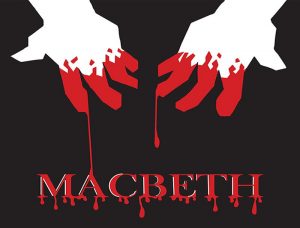
 Literature Guides
Literature Guides
Macbeth – A Modern Look
A rough mountain landscape: fog, wind and snow. Sound, oriental music. And in the middle of it a train of armed men, grim, bearded, wild. Are the Kalashnikovs carrying them over their shoulders? No, they are swords. We are in Scotland in 1057, not in today’s Afghanistan, and the Warlord, who is approaching the battle here, is not called Ahmed, but Macbeth. But the confusion is close, the analogy must be intent: Look, director Justin Kurzel seems to want to say: Shakespeare is still and again our contemporary.
This may be. But Macbeth?
The new adaptation of the old play with Michael Fassbender in the title role of the bloody climber and Marion Cotillard as his accomplice and queen is – no question – a feast for the eye. At any rate, if you like mountains and marshes in the rain, rushing warriors, streams of blood in slow motion, and-well, fine people like Fassbender and Cotillard. Anyone who has visited the island of Skye should recognize some of the picturesque locations. But the heart remains cold. You never feel like you are part of a contemporary story – neither “House of Cards” or “Game of Thrones”. Why is that?
Shaggy Scots
When the plays were premiered, all the spectators knew that Shakespeare even negotiated their presence when, for censorship, he moved them to foreign countries or the distant past. His Romans, Greeks and Trojans carried contemporary clothes on stage, as did his medieval English kings.
When the piece was written about the Scottish warrior and usurper Macbeth, probably in 1606, a Scotsman (and Shakespeare fan) sat on the English throne. James I, son of the diligent Maria Stuart, considered himself a descendant of the Banquo, whom Macbeth had murdered. Shakespeare celebrates Banquo’s fidelity and describes how his son escaped the ruthless to found a dynasty. Jacob believed in witches. Shakespeare built three witches into his play. A planned Catholic terrorist attack on the parliament and the king had raised questions of the legitimacy of rule and resistance: they are at the center of the play. For Shakespeare’s viewer Macbeth was not a shaggy clan chief from dark times, but a modern putschist.
The Australian Kurzel but emphasizes the shaggy. His Scots are half-wilderness. They live in the mud. Cold and wet creep through all cracks. Pre-Christian abundance and Christian faith are struggling for the supremacy behind the painted foreheads; Archaic values such as mannershread and fighting courage, clan loyalty and hospitality dominate this male-chauvinist society. In order to gain influence over her husband, Lady Macbeth has to surrender to the dark powers – she does this at Kurzel, unlikely, in a Christian chapel – and summon the demons to take her sex and take him all soft, compassionate, her to “leave”. They do her the favor. The couple remain childless.
And where are the children?
This is the key to the drama for Kurzel. Like some Shakespeare exegetes before him, especially Sigmund Freud, he sees in Shakespeare’s dramatic world a single family setting and in what is not shown the really important. In his first film, “Snowtown,” he made fatherlessness the central problem of his negative hero, a serial killer. The serial killer Macbeth, so his second film suggests, suffers from his childlessness – more precisely, the loss of his children.
There is evidence in the text: “He has no children!” Macbuff’s opponent Macduff asks about the murder of his wife and children by the despot. But when Macbeth, at the beginning of his bloody career, hesitates to kill the right-wing king and put on the crown, Lady Macbeth tells him that she has also suckled children, but would rather tear her own baby from his breast and his skull crashing on the wall, as such a meme continues to listen.
Aha! The Macbeths had children! Where did they stay? Like just some German hero of the Regietheaters, Kurzel inevitably invented two scenes, in which the Macbeths lose two children. In the first scene, the couple silently bury a girl who seems to have succumbed to a disease; a little later a boy dies at Macbeth’s side in battle. If this had been important to Shakespeare, he could have written the scenes himself.
The Highlands are not the Hindu
No, Macbeth is not a traumatized Taliban, not a criminal of lost paternity. Shakespeare used the old story to describe a new phenomenon for his contemporaries: the Machiavellian ruler, for whom the purpose sanctifies all means because he considers nothing sacred. Again and again Macbeth emphasizes that he does not believe in a survival or a divine judgment; that murder creates security in the here and now and that afterwards nothing comes.
It is true that the play punishes him continually: the murdered ones return to torment him, the conscience sends his queen into madness and death. But at the end of his life he is still convinced that life is a fairy tale, told by an idiot, without meaning, the end for good as well as for evil the dusty death. It speaks volumes about Kurzel’s view of the play, that he lets Fassbinder these thoughts as if by the way, while the camera in the Halbtotalen persists. Certainly, one does not have to declaim them as Orson Welles, but they deserve more attention than the alleged familial endrama of the Macbeths.
Macbeth’s motives, however, which make the play problematic today, and precisely Kurzel’s attempt to settle it somewhere in Hindukush or nowhere, make this clear. The machiavellist power is – despite Putin and Assad – not our main problem. We understand these types, also thanks to Shakespeare, we read them like an open book, we know that they will fail, like Macbeth.
Macbeth was Stalin
When the Polish literary scholar Jan Kott wrote in 1965 that Shakespeare was our contemporary, it was because the poet expounded the mechanism of power in totalitarian societies. Macbeth was Stalin or one of the many small Stalin’s of the Eastern Bloc. At about the same time, the play “MacBird” celebrated successes in which the power man Lyndon B. Johnson comes to the White House through the murder of John F. Kennedy.
But that is history. And therefore the film does not move, despite beautiful pictures, and even though Fassbender and Cotillard play well and the shaky-abbreviated, but recognizable – Shakespeare text properly. Macbeth is simply a serial killer in the Scottish rain. Whom we still do not really understand are people who, like William Shakespeare, do not believe in Machiavelli, but to divine orders: faith warriors, permeated by the omnipresence of God and the closeness of the hereafter. People who accuse us of believing in nothing, of not holding anything sacred, of having a purely practical relation to existence. For the Taliban, to make it clear, we are Macbeth’s children.
To make this clear, one would have to write a new piece. It could be called “Homeland”.



